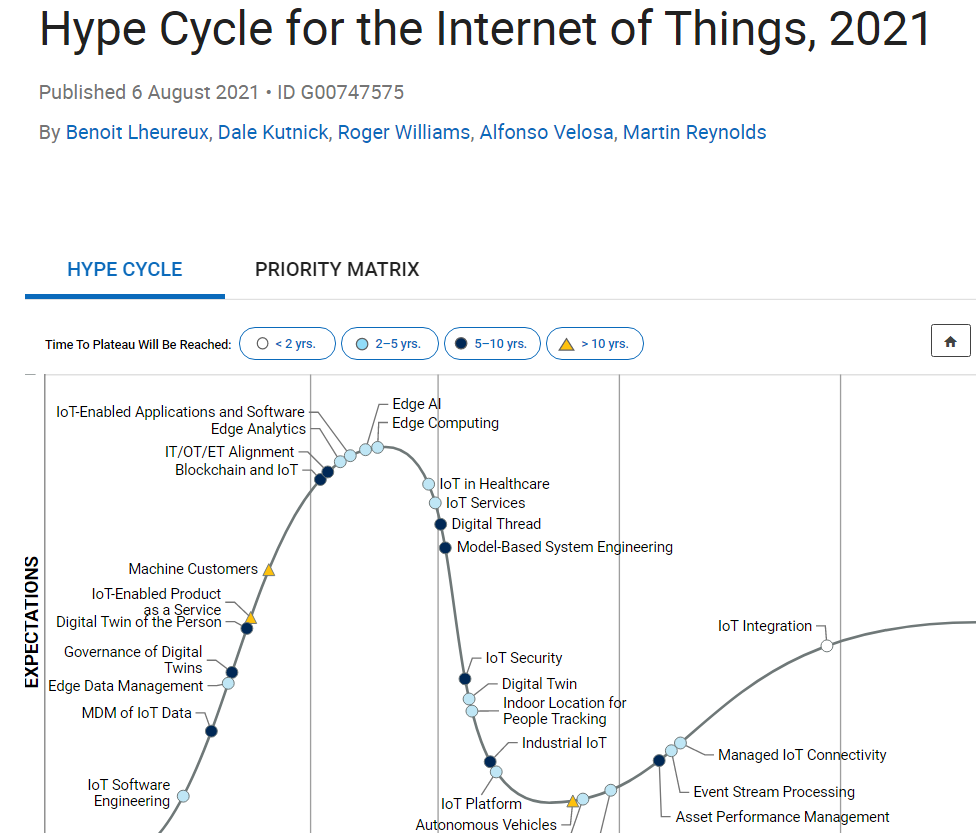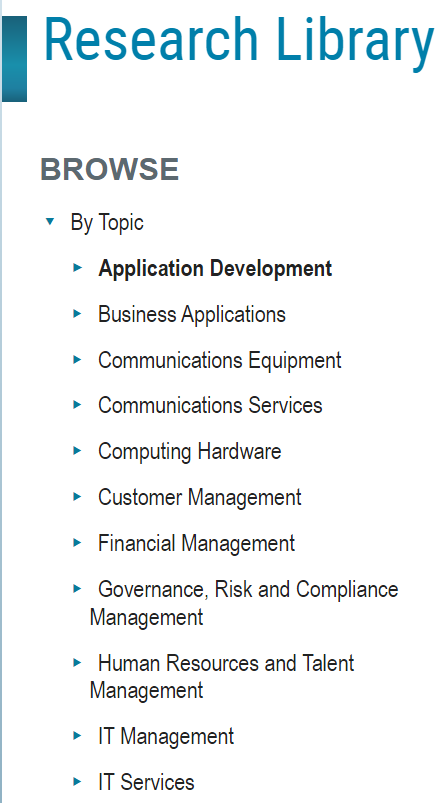The Emory community has access to a wealth of business research databases. This series highlights many of these great resources, including content and the best applications for classes and career prep.
What You Will Find
Gartner is an excellent resource for gathering market research reports on all aspects of the IT landscape including forecasts, best practices, case studies, competitive analysis, market share and SWOTs. Gartner also provides interactive views of markets and offerings through the Gartner Magic Quadrant (as per the Gartner website, “a graphical competitive positioning of four types of technology providers in fast-growing markets: Leaders, Visionaries, Niche Players and Challengers”) and Hype Cycles (see below), which show in graphic form how technologies and applications mature and are adopted by consumers and businesses.
Use for Class Projects
In your research for course projects, you may need to evaluate a specific IT market to better understand how it operates and to make recommendations for future growth. Through the market research reports, case students, and competitive analysis that Gartner provides, you will be able to find all this information and more.
Gartner also provides an extensive research library so you can delve more deeply into a variety of topics related to your course projects.
Use for Interview Prep
When preparing for an interview, it is critical that you understand the industry you want to work for and stay up-to-date on key issues that might impact that industry. In addition to all its content on markets, competitive landscapes, and industry trends, Gartner offers a monthly audio program titled Talking Technology that, according to Gartner, “features the best advice on the hottest issues in IT.” In tandem with additional research, this resource will help prepare you to have thoughtful discussions on your chosen industry with recruiters.
Additional Business Research Resources
You can also use the Business Research Guide to locate additional business resources, locate tips for how to use them, and understand which are best for your specific research needs.


